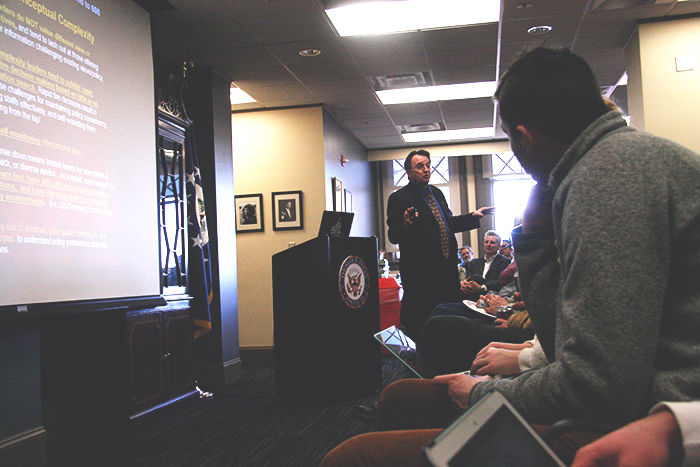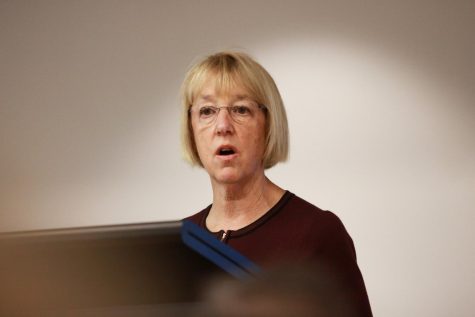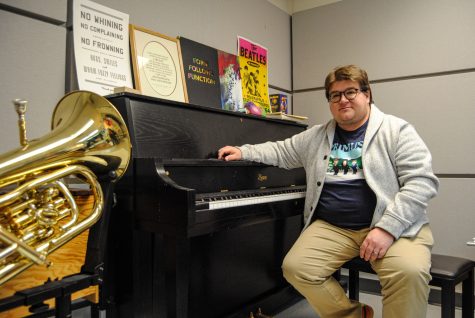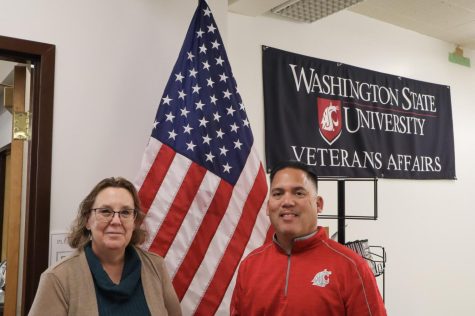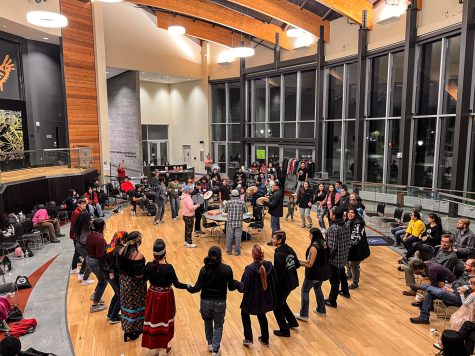Trump’s complexity could cause ‘fiascos’
February 15, 2017
In a Foley Institute “Coffee and Politics” lecture a WSU political scientist discussed how he conducted a psychological profile on President Donald Trump and how the president’s psyche could affect some of his policy decisions.
Thomas Preston, a WSU political science professor, showed previous profiles from a leadership trait analysis that looked at speeches and interviews. The analysis revealed certain characteristics from over 600 world leaders.
The profiles looked for two things: a leader’s need for control and their involvement in the policy, and the general sensitivity to context and their need for information.
It is important because leadership style sets the rules of the game, Preston said.
“It’s an enabler of power, that either makes them effective or it works against their ability to do so,” he said.
Trump showed signs of a low complexity and lack of experience, a low need for information, and he preferred to appoint advisers based on loyalty rather than expertise, Preston said.
“Most presidents at least have some policy or military expertise,” he said. “Trump basically has no prior policy experience, which is unique.”
Trump scored extremely high on the distrust category, nearly three deviations higher than the average world leader. The problem is his lack of expertise will make it very difficult to set up his expert inner circle, Preston said.
“’Pseudo’ experts,” he said, “or only someone who is perceived to be an expert if Trump sees him as an expert compromises the role of our policy.”
The lack of expertise is a problem that could lead to fiascos and micromanaging, he said, and policy formulation will be tightly centralized within the inner circle.
“He’ll just want a say in the final decisions, but he’ll delegate the formulation and implementation,” Preston said.
This matters because those who are in the inner circle and have Trump’s ear will have the most power, he said. Leaders with this complexity only gather information that supports their preexisting views, he said, and dissent will be seen as disloyalty.
With his low complexity, Preston said Trump will lash out at people that challenge his version of events. Low complexity leaders tend to exhibit rapid, impulsive decision-making based on little or no information. This will cause challenges for maintaining a consistent policy, he said.
“Truman was low on complexity, and it was chaotic until things started getting staffed out,” Preston said.
Trump makes very fast decisions without staffing, and no one is staffing the president, he said.
“We are just going to keep seeing this pattern of chaos,” Preston said.
John Kennedy ranked highly in complexity. It makes a big difference when presidents have the information, he said.
Preston went over some characteristics of Barack Obama and Russian President Vladimir Putin. Both scored high in complexity and were ranked very strategic, he said.
Other aspects that Preston considered in his psychological profile were Trump’s age and health over the next four years. Trump is currently 70 years old, overweight and does not exercise. On top of that he is in a very high-stress position, he said.
On one positive note to Trump’s character, Preston mentioned that because of the president’s rapid fire decision-making, he would react well in certain crises.
“Certain types of crises are very well-suited to someone who thinks in very black and white terms, because they don’t think in nuanced gray areas,” Preston said.
He then used President George W. Bush’s quick response to the Sept. 11 attack on the Twin Towers as an example, as Bush was also a low complexity president, he said.
“You just have to hope that they’re shooting straight,” Preston said.


